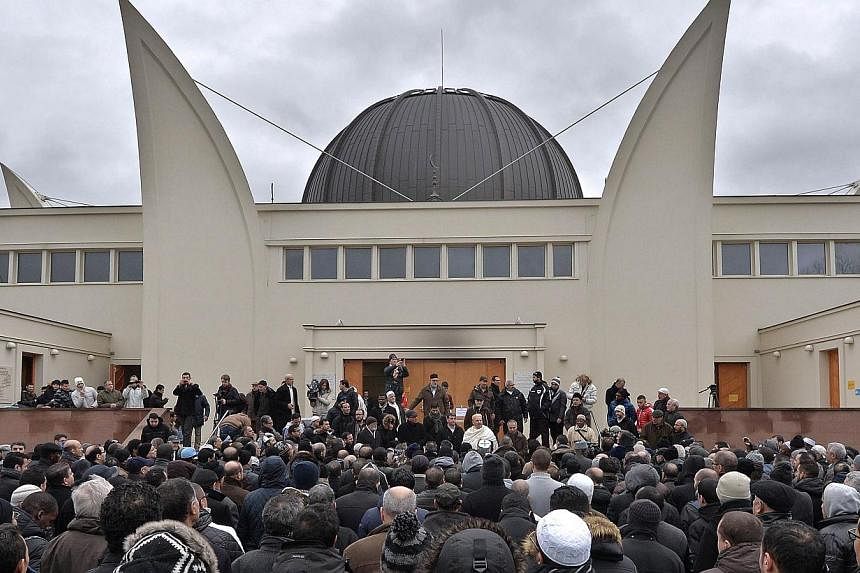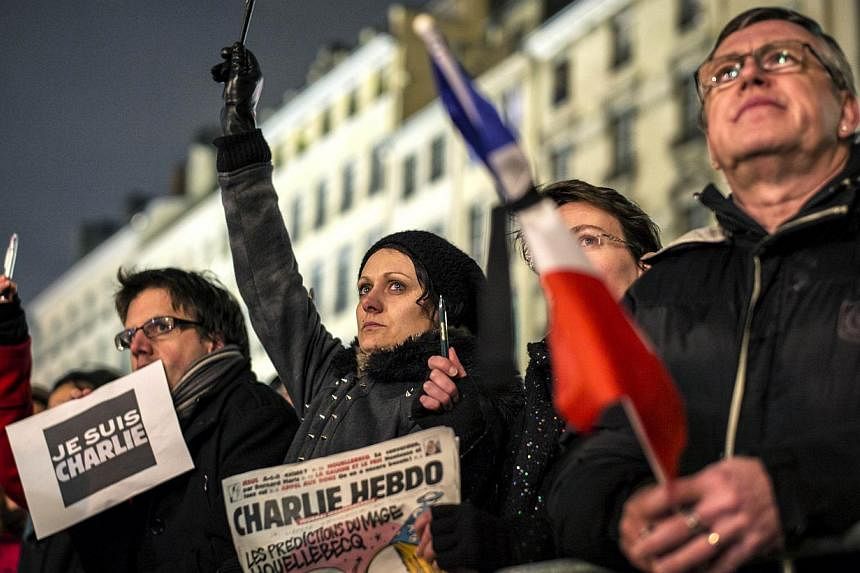The France that endured a vicious terrorist attack last week is a France that has suffered, for decades and centuries, from anxieties about its own decline.
And for good reason: Since the 18th century, when it bestrode Europe and seemed poised to dominate the globe, France has seen its relative power diminish, suffering defeats and humiliations at the hands of rival forces, from Britain's navies to Germany's jackboots to the invading might of US popular culture.
Now these longstanding anxieties have been thrown into relief by the murderous attack on the satirical magazine Charlie Hebdo, an attack linked to all the various spectres haunting contemporary France: fears of creeping Islamification and rising anti-Semitism, fears of the far right's growing power and anti-Muslim backlash - and all of it bound up in a larger sense, amid economic stagnation, of betrayal at the hands of the continent's elite.
But notwithstanding these declinist fears, France isn't actually irrelevant or spent. Instead, it's arguably becoming more important, more central to the fate of Europe and the West.
No, the age of the Sun King isn't about to return. But politically, culturally, even intellectually, events in France over the next half-century could matter more than at any point since before the two world wars. Indeed, more than Germany or Greece or Britain or any other actor, it's in France that the fate of 21st-century Europe could ultimately be decided.
Consider the specific issue at the heart of the Hebdo nightmare: the question of whether European nation-states can successfully integrate Muslim immigrants, and what will happen if they don't.
Here France looks like the crucial test case. It has the largest Muslim population of any major European country, and parts of that population are more assimilated and others far more radicalised (16 per cent of French citizens expressed support for the Islamic State in a poll last summer) than elsewhere on the continent.
Not surprisingly, the response to Islam is divided as well: Muslims are regarded more favourably in France than elsewhere in Western Europe, and yet French politics features an increasingly potent far-right party, Ms Marine Le Pen's National Front, whose electoral clout is now likely to increase.
Meanwhile, France's foreign policy has distinctive (often military) entanglements across northern Africa and the Levant, which means the ripples from French domestic politics have more room to spread and then return.
So if there's a path to greater Muslim assimilation and inclusion, it's more likely to be pioneered in France. If Islamic radicalism is going to gain ground or mutate into something more pervasive and dangerous, it's also more likely to happen in France's sphere of influence than elsewhere.
And if Europe's much-feared far right is going to complete its journey from the fringe to the mainstream, it will probably happen first in Paris.
French politics is likewise central to the fate of the wider European Union project, which is in crisis at the moment because of the gulf between Germany's interests and the interests of the EU periphery, Greece and Italy and Spain. But that gulf (and the weight of 20th-century history) means that the Germans, however economically dominant, cannot hold the union together on their own.
Instead it's France, for reasons of history and culture as well as geography, that has to bridge the divide between Europe's north and south and make the EU work politically. Unless, of course, the French gradually and fatefully choose not to, in which case the entire project will fall apart or be completely reconceived.
Either way, France's star may rise as Germany's descends. Demography, the source of so much Gallic anxiety in the past, suddenly has turned in France's favour: The Germans are rich but ageing, whereas even amid economic drift, the French birth rate has risen sharply (suggesting a certain optimism amid the ennui).
By the 2050s, under some scenarios, France could once again have the larger economy and population - making it either dominant in a more integrated Europe, or the most important power on a continent more divided than it is today.
Then amid these political and economic patterns there's an important intellectual possibility - namely, that if there's something beyond the West's current end-of-history torpor, some new ideological conflict or synthesis, it might emerge first in the place where so many revolutions had their birth.
France has always been a country of extremes - absolutist and republican, Catholic and anti-clerical, communist and fascist. Now it's once again the place where strong forces are colliding, and where the culture's uncertainties - about Islam, secularism, nationalism, Europe, about modernity itself - suggest that new ones might soon be born.
The decline has been real but the future is unwritten. If there is real history yet to be made in Europe, for good or ill, it might be made first in la belle France.
NEW YORK TIMES


